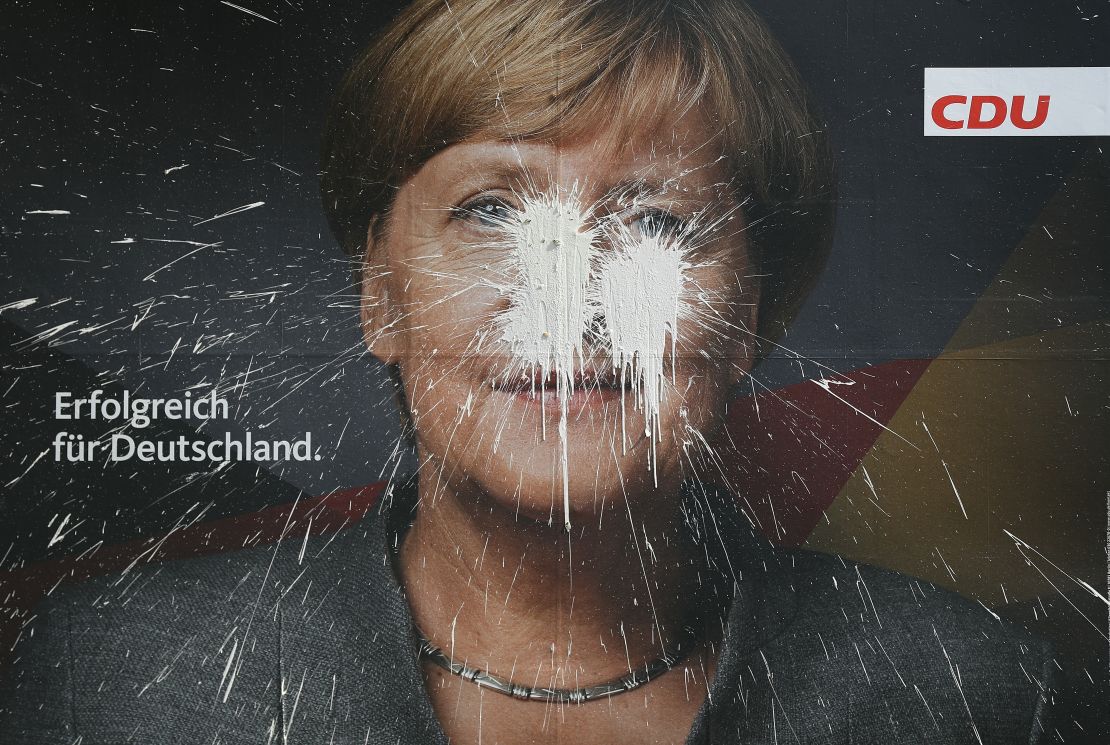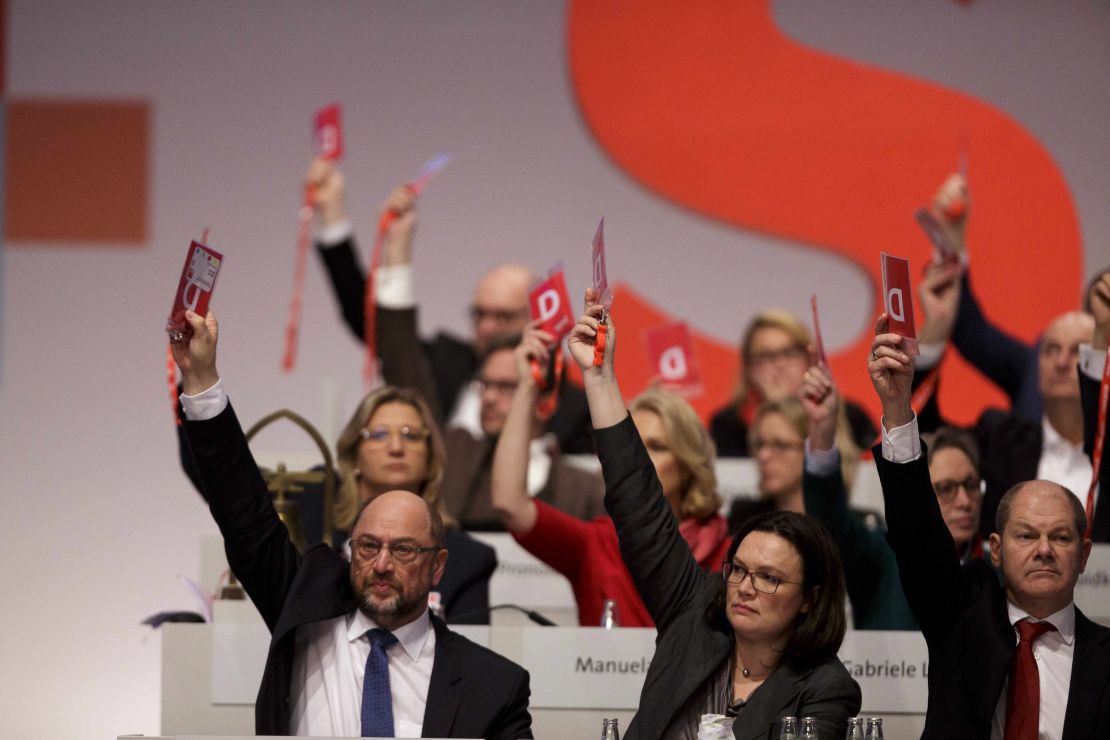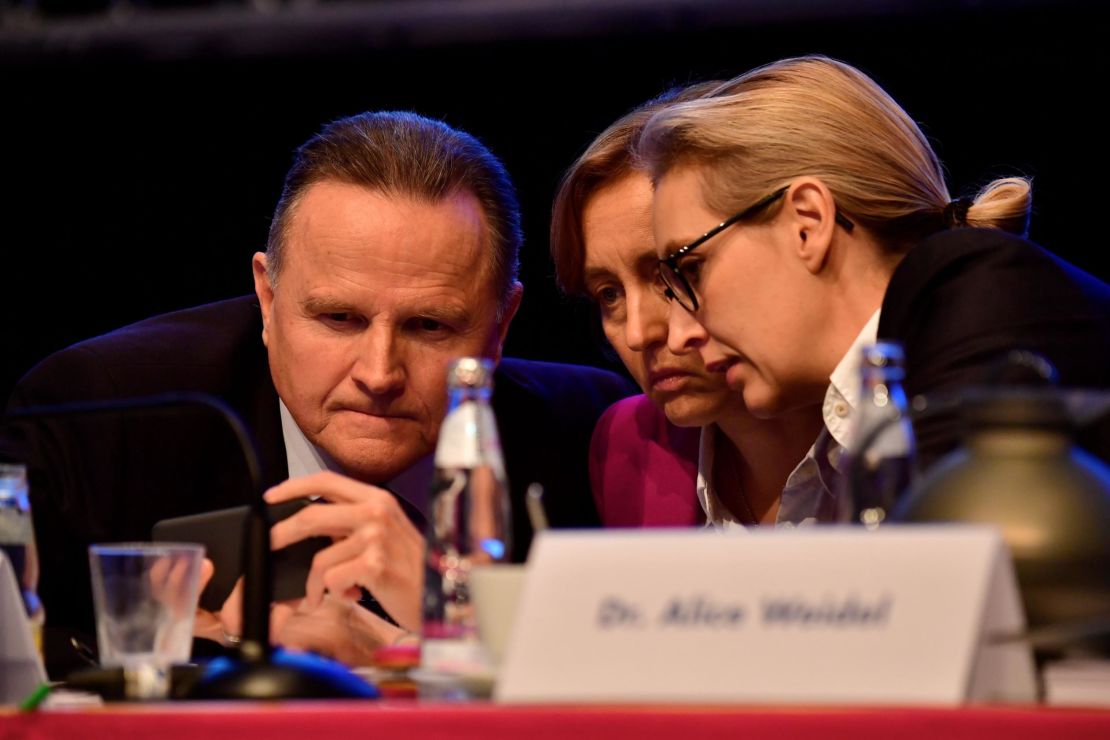Six hundred delegates from Germany’s Social Democratic Party (SPD) will descend on the city of Bonn this Sunday for a special party congress.
All eyes are on one agenda item: A vote on starting official coalition negotiations with Chancellor Angela Merkel’s Christian Democrats (CDU) and their more conservative sister party, the Christian Social Union (CSU).
Just six weeks ago, the SPD voted overwhelmingly to start the initial exploratory talks. This time, it looks to be on a knife edge.
But if the vote passes, the collective sigh of relief is likely to drown out any celebrations.
It’s nearly four months since Germany’s federal election, in which support for the country’s two largest parties slumped leaving Merkel with a mathematical and ideological quandary in her effort to form a new government.
Talks with the liberal FDP (Free Democratic Party) and Green Party collapsed, leaving a renewal of the so-called “GroKo” (Grosse Koalition or Grand Coalition) as the only option – unless Merkel opts to rule alone in a minority government or put the country on the path to new elections.
“No one is particularly excited about another grand coalition,” said Christoph Nguyen, political scientist at Free University Berlin. “But most of the alternatives are even less pleasant to consider.”
“It’s a bad option, but probably the least bad option.”

Germany’s had this government for the last four years. So what’s the problem?
After leading the SPD to its worst election performance since World War II, Martin Schulz immediately and categorically ruled out a new GroKo.
Voters had called for change, he argued, and the party needed time to regroup and redefine itself in opposition. Launching into a new GroKo would also mean granting the far-right Alternative for Germany (AfD) a set of privileges enjoyed by the largest opposition party – which Schulz was keen to avoid.
After the FDP walked out of coalition talks two months later, Schulz was quick to stifle rumors of a U-turn.
“I am not available for entering a grand coalition,” he said. “It’s quite clear that the grand coalition got the red card.”
But, under pressure from President Frank-Walter Steinmeier, who urged the country’s leading politicians not to rush headlong into new elections, Schulz soon began to change his tune.

Leopold Traugott, policy analyst at think tank Open Europe, thinks he had little choice. “The SPD is stuck between a rock and a hard place,” he told CNN.
With the party currently polling at its lowest ever level, new elections aren’t a good option. But during the last GroKo, the far-right AfD grew into the country’s third-largest party, with the SPD and CDU/CSU losing votes to fringe parties on both the left and right.
“Another four years of this government is likely to strengthen that trend,” Traugott said. “The political landscape is becoming more fragmented – the fringes keep growing.”
That’s definitely bad news for Schulz – and the youth wing of his party isn’t allowing him to forget it.
Traveling around Germany this week, lobbying for “yes” votes, Schulz has been greeted by groups of protesting “Jusos” (young social democrats), chanting “Never, never, never again GroKo.”
Their hashtag #NoGroko has been gaining significant traction on social media.
The Jusos have a “somewhat justified fear that the SPD is ruling itself out of existence,” said Nguyen, “that they will continue to lose votes until they become a minority party.”
A new GroKo – which is fast becoming the status quo in German politics and is widely considered an obstacle to genuine debate and real reform – seems unpopular among the general public too.
A recent poll from public broadcaster ARD showed that 52% of respondents did not think another grand coalition was a good idea.
“There’s dissatisfaction about the way the main parties have ruled and the way they’ve disregarded criticism,” said Traugott.
Is anyone happy about it?
Merkel’s sigh of relief will likely be the loudest if the motion passes on Sunday. She has repeatedly stated her preference for a new GroKo – and the sooner the better.
“She knows how to handle the SPD,” said Traugott. “It’s a comfy solution for her.”
Despite their many public protestations, the opposition parties are likely to be pleased too. They all profited from the demise of the CDU/CSU and SPD after the last grand coalition and will be hoping for more of the same.
One branch of the AfD has already made its ambitions clear. A new GroKo “could make the #AfD the second strongest party in the polls,” the party’s Thuringia branch wrote in a tweet on Monday.

It is already relishing the prospect of being the largest opposition group in parliament, which the party’s co-chairman, Joerg Meuthen, described in a Facebook post as the “only bright spot” in a so-called “LoKo” (“loser coalition”).
Indeed, politicians of all stripes – well versed in the practice of attacking a CDU/SPD government – have already begun launching grenades from left, right and center.
This is “not the renewal project for our country that we need,” said FDP leader Christian Lindner in a video posted to Twitter, while Green Party co-leader Cem Oezdemir accused the CDU and SPD of behaving like Richard Burton and Elizabeth Taylor, forever splitting up and remarrying.
If Merkel and Schulz do eventually limp over the finish line – which probably won’t happen before April or May even if things go well – their new GroKo is likely to be weaker than the old one and even easier to attack.
The parties involved lost more than 100 seats between them at the last election – and they’re facing four opposition parties now, instead of just two.
Moreover, the very visible “internal split” in the SPD won’t heal easily, according to Nguyen, and Merkel, who seemed almost indestructible before the election, is weaker too, despite weathering this particular storm better than most politicians.
So how should the SPD vote on Sunday? Nguyen sees little hope either way: “They’re damned if they do and damned if they don’t.”



